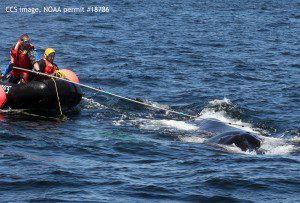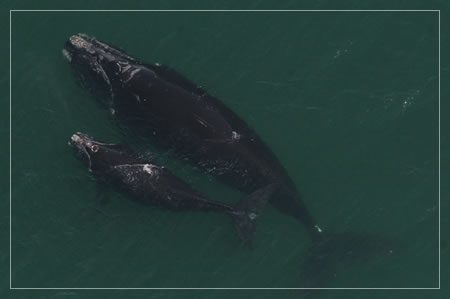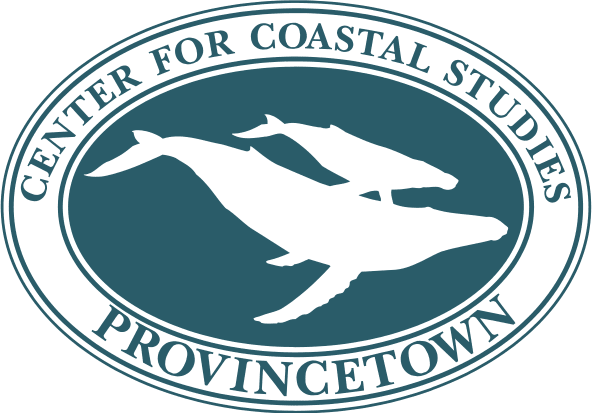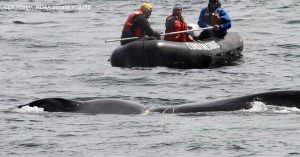
MAER crew use a hooked knife to cut entanglement from humpback whale Foggy. May 18, 2016. CCS image taken under NOAA permit #18786.
May 18, 2016
On Wednesday, May 18 the Center for Coastal Studies’ Marine Animal Entanglement Response (MAER) team responded to a severely entangled adult humpback whale, named Foggy, off Cape Ann, Massachusetts. The team had to leave heavy rope that was embedded around the circumference of her body since removing that portion of her entanglement would likely have been immediately lethal.
The entanglement was reported by fishermen and the crew stood by the whale until the MAER vessel Ibis and the Environmental Police patrol vessel Thomas Paine arrived on scene.
The whale had a number of twisted ropes, about 1 inch thick, wrapped around the circumference of her body, just behind her head (CLICK HERE for video). This collar of line was embedded 3-6inches deep into blubber and muscle. This rope had become snagged on more fishing gear that was attached to the seafloor, anchoring the whale to a small circle but allowing her to remain at the surface for air.
The team worked with the whale for over nine hours, eventually freeing her from anchor and severing the collar around her body. The collar however is still deeply embedded in her body. While the prognosis of this whale is now much better, the overall condition is quite poor.
“We dulled or broke every knife in our kit and every teammate worked their fingers to the bone for this whale. Short of removing the 40 ton whale from the ocean and performing surgery, we did everything humanly possible for this animal” said Scott Landry, Director of the MAER program. “With the collar now broken she has a chance to naturally reject the rope but she is quite thin and in poor condition so we have to hope for the best”
This is the second time that this whale, identified by Center for Coastal Studies Humpback Whale Studies researchers as a 29 year old female name Foggy, has been disentangled; the first time was in September 2013, in the Bay of Fundy, off Nova Scotia with the MAER team working alongside the Campobello Whale Rescue Team.
The CCS MAER team wants to extend a special thanks to the fishermen for their help standing by the entangled whale. They stayed at a safe distance while reporting the whale – this is a critical first step in the process of disentanglement. The Center is also grateful to the crew of the MEP vessel Thomas Paine their assistance in this response.
Mariners are urged to report any entanglement sightings of whales, sea-turtles and other marine animals to the Marine Animal Entanglement Response Hotline (1-800-900-3622) or the US Coast Guard, and to stand by the animal at a safe distance until trained responders arrive.
CCS disentanglement work is supported by a grant from the National Marine Fisheries Service (NMFS) and the Massachusetts Division of Marine Fisheries (MA-DMF). Support for the Marine Animal Response Team also comes from grants from the Massachusetts Environmental Trust, the Pegasus Foundation, the Hermann Foundation, the Mary P. Dolciani Halloran Foundation, the G. Unger Vetlesen Foundation, the Grace W. Allsop Foundation, the MALLRD Foundation, and contributions from CCS members. All disentanglement activities are conducted under a federal permit authorized by NOAA.

Our Work
Humpback Whale Research
Right Whale Research
Marine Animal Entanglement Response
Marine Geology Department
Water Quality Monitoring Program
Marine Fisheries Research
Seal Research
Shark Research
Marine Education
Interdisciplinary
Marine Debris and Plastics Program
Marine Policy Initiative
Cape Cod Climate Change Collaborative
Publications


